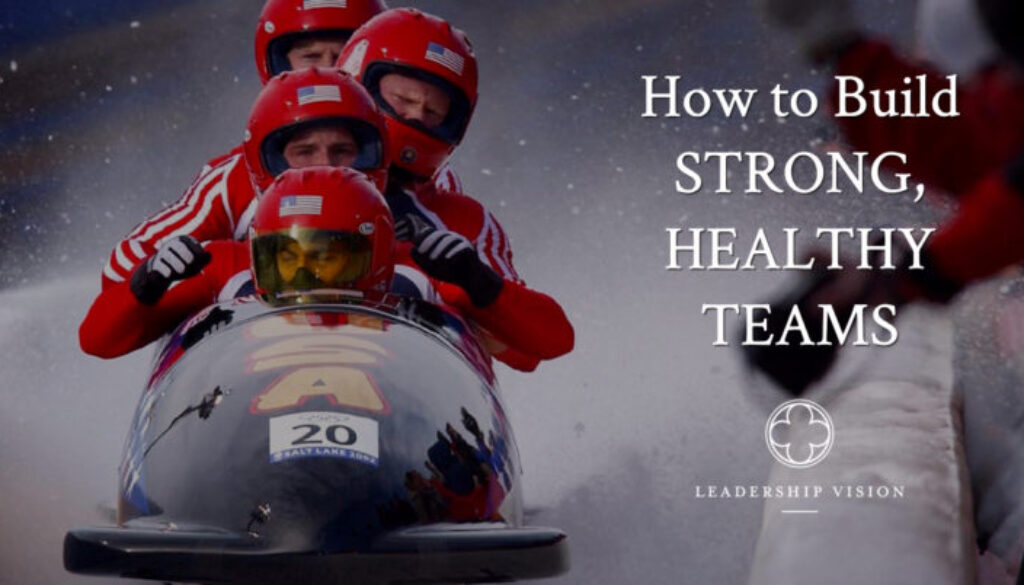How to Build Strong, Healthy Teams
The most requested topic we get is something about, “StrengthsFinder for Teams.” Anything related to utilizing and leveraging Strengths on a team is our most frequently asked question. In fact, if you look at Google search data, you’ll see that some permutation of “StrengthsFinder” and “Team Building” dominates search results.
Most often, people are just looking activities: something they can do during a staff meeting, event or off-site. This is great, and we have a lot of resources to meet that need. However, we have come to understand that people really need a lasting way to engage teams beyond simple activities.
Team Engagement Model
We have worked for over 15 years, helping people understand their own strengths and reveal their greatest potential. But after, we repeatedly heard, “So now what?” We recognized that there was a gap between the individual strengths work and the integration of it at the team level. We knew that simply knowing your own strengths was not enough.
So, we responded by creating a Strengths Based Team Engagement Model that will help align teams. Brian, Aleasha, and Linda have been at the forefront of this work for us. Over multiple years, we studied over 140 professional teams, and our findings were clear. Teams of all sizes, and in all industries face the same challenges to maintaining a healthy, high-functioning team centered around 3 core areas:
- Knowledge
- Purpose
- Trust
Back in 2015, Aleasha wrote in depth about our model. Becoming a healthy, functioning team isn’t hard, but it does take intentional, focused effort. As we begin 2017, it felt appropriate to revisit this model to begin the year with an intention to create highly impactful teams.

1. Knowledge – Why Knowing your People Matters
Our study and intensive observation of teams through a Strengths based lens revealed that there is an unmistakable difference between healthy and unhealthy teams. Simply put, unhealthy teams are out of balance. These struggling teams spend a disproportionate amount of time focused on the work itself. The what, rather than the who, the how and the why. Essentially, they overlook the importance of truly understanding who it is that they are working with, how they get this important work done and why in fact they are together.
As a core concept of our Professional Team Engagement Model, Knowledge is about having an awareness and familiarity of each other gained by shared experience. It is also about individuals making a commitment to continually learn about and truly value the contributions of each team member.
Keep reading to learn the 4 keys to overcoming this lack of knowledge.

2. Purpose – What is your Teams Purpose?
As a core concept of our Professional Team Engagement Model, Purpose is about creating a collective definition of our existence as a team. When teams create clarity and alignment around their ‘why’, they are then able to create parameters for working and being together. This process can also help to highlight a disparity between an individual’s purpose and that of their team.
We have found that when teams experience misalignment in this area, more specifically, when they do not try to create and continually calibrate their common purpose, 4 main issues may arise: Shifting Commitment, Change Aversion, Weak Communication, and Limited Traction.
Keep reading as Aleasha explains how to gain greater clarity about the purpose of your team.

3. Trust – Do you Trust your Team?
As the final core concept of our Professional Team Engagement Model, Trust is vital to any team that wants to operate out of their Strengths. Trust is about knowing that team members are who they say they are and do what they say they will do. Consistency and predictability are hallmarks of any trusting relationship. When individuals make a deliberate, ongoing effort to understand each other, the team becomes more robust and resilient. Teams with a high degree of trust can confidently and courageously maneuver around the obstacles that exist.
There are 4 unmistakable issues that arise when a team lacks trust. These things can be devastating to fulfilling the mission of your team and can leave individuals disengaged, or worse.
However, trust is something you can build through some intentionality and time. In the final post, Aleasha shares how to build trust, examples of how we’ve done it with teams, and the key ingredient to getting started.
You Team
What are some of the greatest challenges your team faces? Do any of the three core elements of our model resonate with you? Share in the comments what you have found to build healthy, functioning teams.





